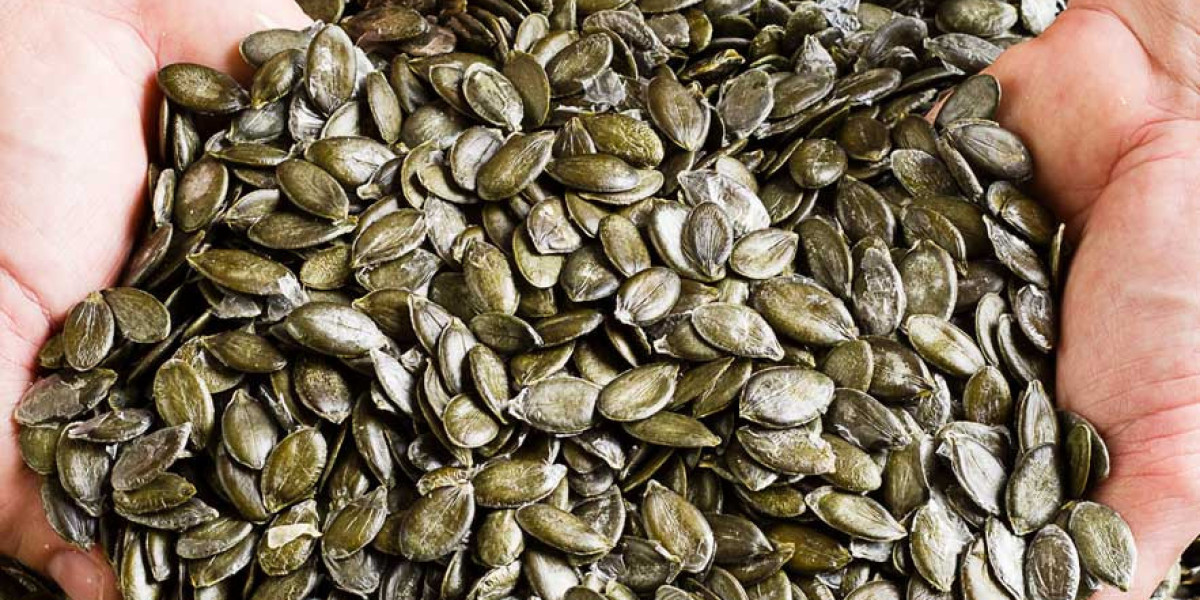1. Rich in Essential Nutrients
Pumpkin seeds are loaded with vital nutrients that support overall well-being. Just a small handful provides:
Magnesium – Supports muscle function, heart health, and bone strength.
Zinc – Boosts immunity and promotes skin health.
Iron – Helps prevent fatigue and supports oxygen transport in the blood.
Healthy Fats – Contains omega-3 and omega-6 fatty acids for brain and heart health.
Protein – A great plant-based protein source for vegetarians and vegans.
Tip: Opt for organic pumpkin seed to avoid pesticides and enjoy maximum nutritional benefits.
2. Supports Heart Health
Pumpkin seeds are heart-friendly due to their high magnesium, potassium, and antioxidant content. Studies suggest they may help:
Lower bad cholesterol (LDL)
Regulate blood pressure
Reduce inflammation in blood vessels
How to enjoy: Sprinkle roasted pumpkin seeds on salads or oatmeal for a heart-healthy crunch.
3. Boosts Immune Function
Thanks to their zinc and antioxidant content, pumpkin seeds strengthen the immune system. Zinc is crucial for:
Fighting off infections
Speeding up wound healing
Supporting healthy cell growth
Tip: Snack on a handful of pumpkin seeds during cold and flu season for an extra immunity boost.
4. Promotes Better Sleep
Pumpkin seeds contain tryptophan, an amino acid that helps produce serotonin, which converts to melatonin—the sleep hormone. They’re also rich in magnesium, which promotes relaxation.
How to use: Eat a small portion of pumpkin seeds in the evening or blend them into a bedtime smoothie.
5. Aids Digestion and Gut Health
High in fiber, pumpkin seeds support healthy digestion by:
Preventing constipation
Feeding beneficial gut bacteria
Reducing bloating
Best way to consume: Add raw or roasted pumpkin seeds to yogurt, soups, or homemade granola.
6. Supports Prostate and Bladder Health
Research suggests pumpkin seed extract may help reduce symptoms of an enlarged prostate (BPH) and support urinary health in men. Their high zinc content also plays a role in reproductive health.
How to include: Incorporate pumpkin seeds into your diet regularly or take pumpkin seed oil as a supplement.
7. May Help Manage Blood Sugar Levels
Pumpkin seeds have a low glycemic index and contain compounds that may improve insulin regulation, making them a great snack for diabetics.
Smart snack idea: Pair pumpkin seeds with a piece of fruit for balanced blood sugar levels.
8. Enhances Skin and Hair Health
The zinc and fatty acids in pumpkin seeds contribute to glowing skin and strong hair by:
Reducing acne and inflammation
Promoting collagen production
Preventing hair loss
Beauty tip: Blend pumpkin seeds into smoothies or grind them into a paste for a DIY hair mask.
Delicious Ways to Add Pumpkin Seeds to Your Diet
1. Sprinkle on Salads & Soups
Add a crunchy texture to your meals by tossing pumpkin seeds into salads, soups, or grain bowls.
2. Blend into Smoothies
For extra protein and nutrients, blend pumpkin seeds into your morning smoothie.
3. Bake into Bread & Muffins
Mix pumpkin seeds into homemade bread, muffins, or energy bars for a nutritious twist.
4. Make Pumpkin Seed Butter
A great alternative to peanut butter—just blend roasted pumpkin seeds until smooth.
5. Use as a Yogurt or Oatmeal Topping
Boost your breakfast by sprinkling pumpkin seeds over yogurt, oatmeal, or chia pudding.
6. Create a Healthy Trail Mix
Combine pumpkin seeds with nuts, dried fruit, and dark chocolate for a satisfying snack.
7. Roast with Spices for a Flavorful Snack
Toss pumpkin seeds with olive oil, sea salt, and paprika, then roast for a delicious snack.
Where to Buy Quality Pumpkin Seeds
If you’re looking to buy pumpkin seed online, consider these factors:
Choose organic to avoid harmful pesticides.
Opt for raw or roasted depending on your preference.
Check for freshness—high-quality seeds should smell nutty, not rancid.
3 Unique FAQs About Pumpkin Seeds
1. Can I eat pumpkin seeds if I have a nut allergy?
Yes! Pumpkin seeds are seeds, not nuts, and are generally safe for those with nut allergies. However, always consult your doctor if you have severe allergies.
2. Are roasted pumpkin seeds less nutritious than raw ones?
Light roasting enhances flavor but may slightly reduce some heat-sensitive nutrients. However, both raw and roasted pumpkin seeds remain highly nutritious.
3. How much pumpkin seeds should I eat per day?
A small handful (about 1 oz or 28 grams) daily is a healthy portion, providing ample nutrients without excess calories.
Final Thoughts
Pumpkin seeds are a true nutritional powerhouse, offering benefits for heart health, immunity, digestion, and more. Whether you snack on roasted pumpkin seed, blend organic pumpkin seeds into meals, or buy pumpkin seeds online for convenience, these tiny seeds deliver big health rewards. Start incorporating them into your diet today and enjoy their incredible benefits!








